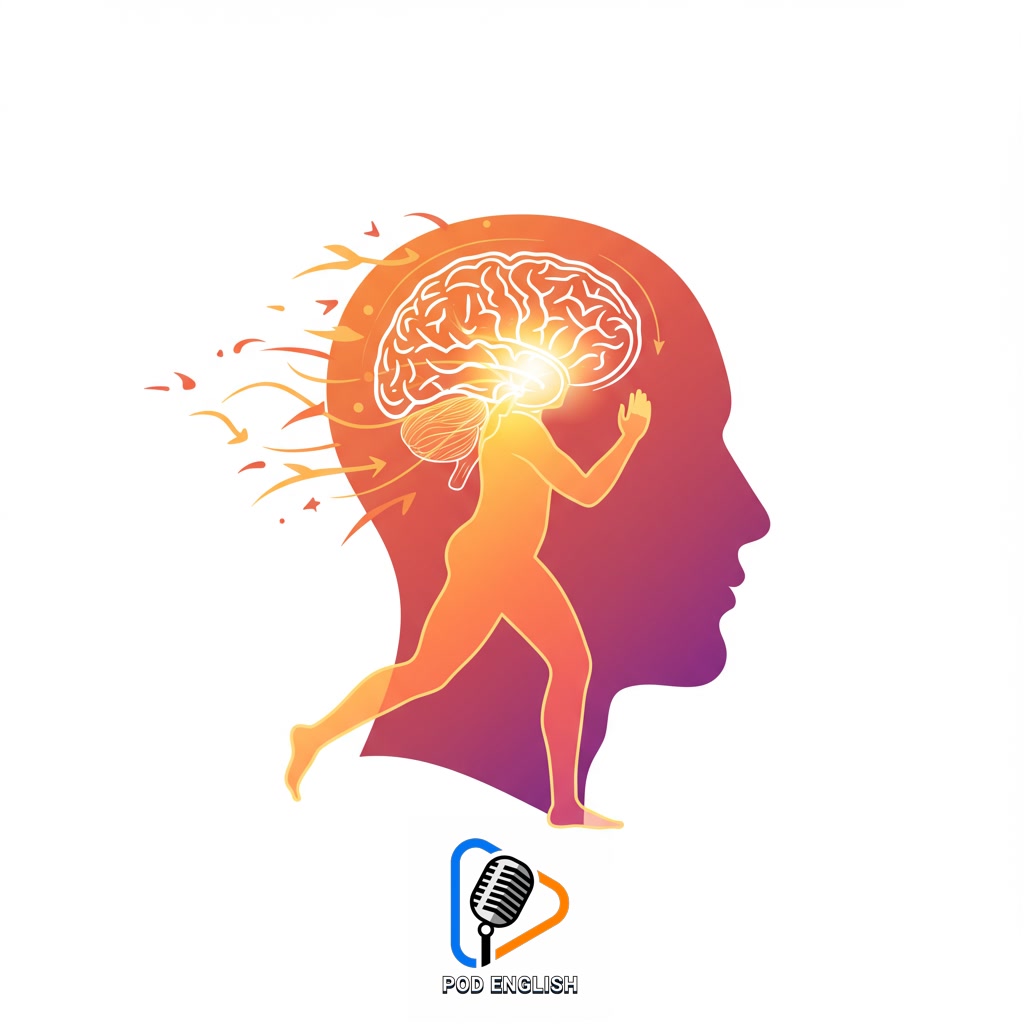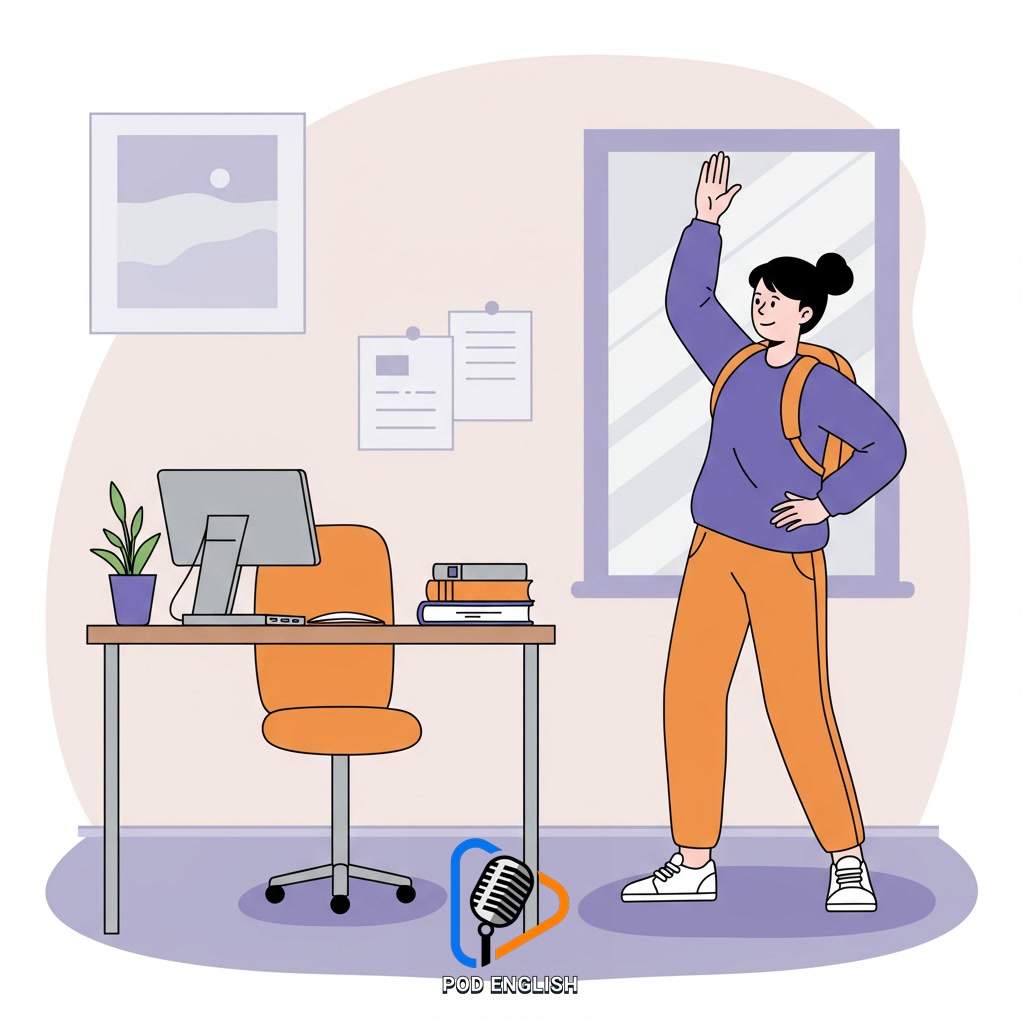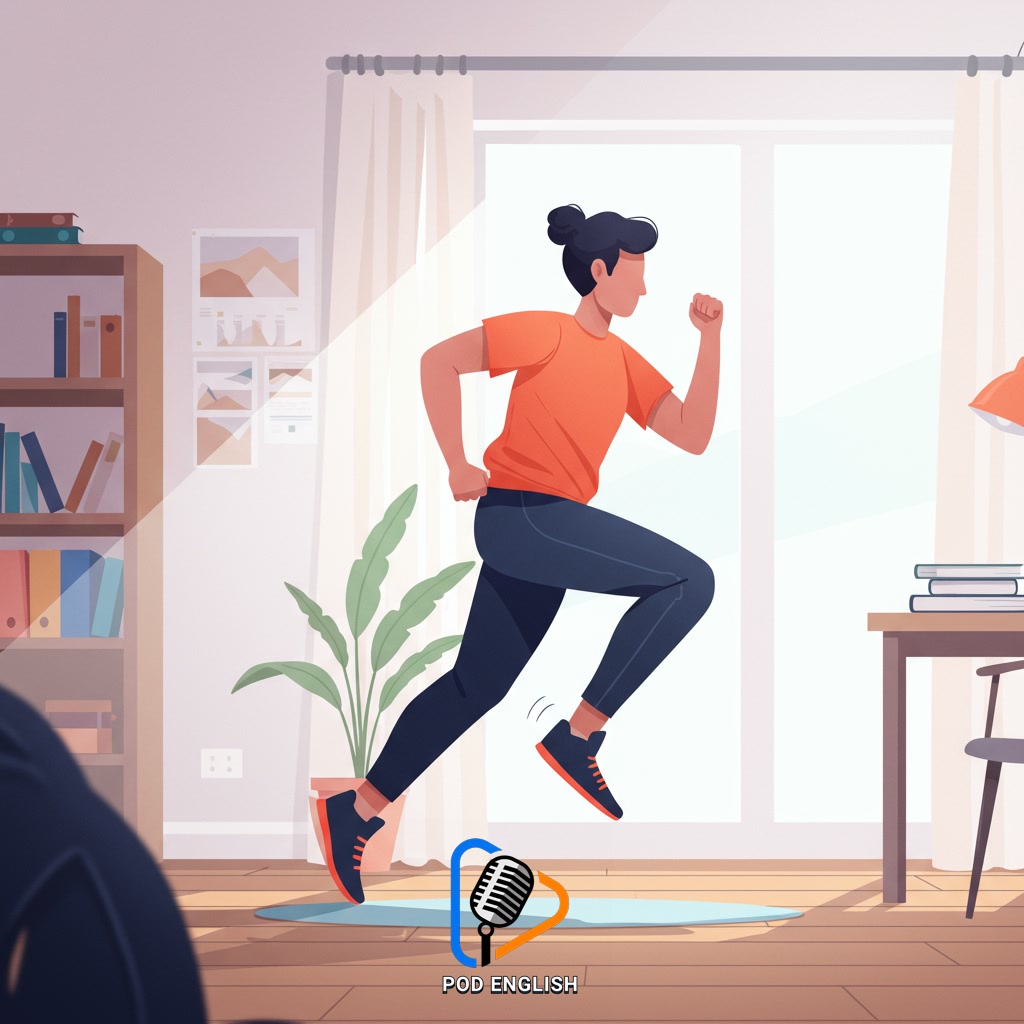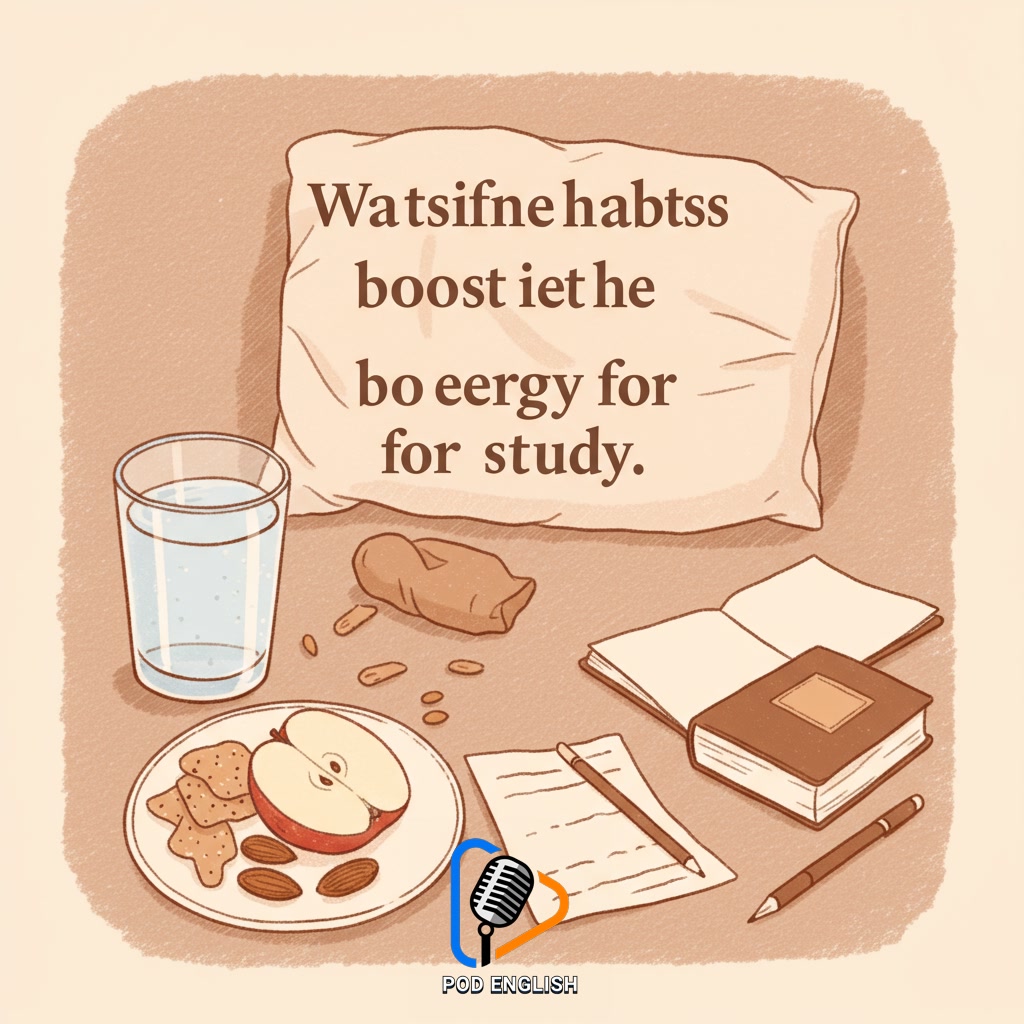Learn English
Best Exercises to Boost Energy for English Study

This content explores effective exercises to increase your energy levels. Boosting physical energy can significantly enhance your focus and concentration. This is particularly beneficial when you are engaged in the demanding task of learning English. Incorporating regular physical activity can help you stay alert and absorb information more effectively during your study sessions.
Table of Contents
- Section 1: The Link Between Energy, Exercise, and Effective English Study
- Section 2: Quick Exercises to Re-energize During Study Breaks
- Section 3: Best Types of Exercise for Sustained Energy and Focus
- Section 4: Integrating Exercise into Your English Learning Routine
- Section 5: Beyond Exercise: Complementary Habits for Boosting Study Energy
- Section 6: Conclusion: Powering Up Your English Learning Journey
Section 1: The Link Between Energy, Exercise, and Effective English Study
Learning English effectively requires significant mental energy and sustained focus. When your physical energy levels are low, it becomes challenging to concentrate, absorb new vocabulary, understand grammar rules, and practice speaking or listening skills. This is because the brain relies heavily on a steady supply of oxygen and nutrients, which are delivered more efficiently when your body is energized. Exercise plays a crucial role here. Regular physical activity doesn’t just build muscles; it improves circulation, boosts mood-enhancing neurotransmitters, and increases overall stamina. By incorporating exercise into your routine, you can directly impact your brain’s capacity to stay alert, process information, and retain what you learn during your English study sessions. This vital link means that taking time for physical activity is an investment in your academic success.

The Link Between Energy, Exercise, and Effective English Study
Section 2: Quick Exercises to Re-energize During Study Breaks
When you’re deep into an English study session and feel your concentration beginning to wane, incorporating quick physical breaks can be incredibly effective at restoring your energy. Unlike longer workouts, these brief bursts of activity are designed to be done right there or nearby, taking just a few minutes to get your blood flowing and refresh your mind. Simple actions like standing up and stretching, doing a few jumping jacks, walking around the room, or even just shaking out your limbs can interrupt the sedentary state of studying and send oxygen to your brain. This immediate physiological boost helps clear mental fog, reduces stiffness from sitting, and prepares you to return to your English materials with renewed focus and alertness. These short, intentional movements are a powerful tool to combat fatigue and maintain productivity throughout extended learning periods.

Quick Exercises to Re-energize During Study Breaks
Section 3: Best Types of Exercise for Sustained Energy and Focus
Not all physical activities benefit energy levels for study in the same way. For sustained focus, opt for exercises that increase blood flow and oxygen to your brain without inducing significant fatigue. Moderate-intensity aerobic activities like brisk walking, cycling, or light jogging are excellent choices. Even dynamic stretching or a short, energetic dance session can be effective. These types of movement help wake up your body and mind, reducing feelings of sluggishness and improving alertness. Unlike heavy weightlifting or exhaustive cardio which can leave you drained, these moderate exercises provide a noticeable energy boost, helping you return to your English studies with renewed vigor and concentration.

Best Types of Exercise for Sustained Energy and Focus
Section 4: Integrating Exercise into Your English Learning Routine
Integrating physical activity into your English study schedule doesn’t require large, dedicated blocks of time separate from your learning. The key is finding small, consistent opportunities to weave movement into your routine. Consider incorporating short bursts of activity, such as a brisk walk around the block, a few minutes of stretching, or some jumping jacks, during breaks between different study tasks or modules. You might also find it beneficial to listen to English podcasts or review vocabulary flashcards while doing light cardio like using a stationary bike. Scheduling exercise just before you begin a focused study session can also significantly enhance your alertness and cognitive function. The aim is to make movement a natural, complementary part of your learning process, helping you maintain energy and concentration throughout your English acquisition journey.

Integrating Exercise into Your English Learning Routine
Section 5: Beyond Exercise: Complementary Habits for Boosting Study Energy
While integrating movement is crucial for maintaining energy during English study, boosting your focus also depends on habits beyond physical exercise. Ensuring adequate, quality sleep is foundational, as rest allows your brain to consolidate information and recover. Staying well-hydrated throughout the day is equally vital, preventing fatigue and maintaining cognitive function. Paying attention to nutrition, opting for balanced meals and snacks rather than sugary quick fixes, provides stable energy release. Furthermore, incorporating short, mindful breaks away from study materials can prevent burnout and refresh your mental state. Managing stress through relaxation techniques or hobbies also plays a significant role in preserving energy stores. By combining these complementary habits with regular physical activity, you create a holistic approach to sustaining high energy levels and maximizing your effectiveness in learning English.

Beyond Exercise: Complementary Habits for Boosting Study Energy
Section 6: Conclusion: Powering Up Your English Learning Journey
In conclusion, actively incorporating physical movement and prioritizing healthy habits like sufficient sleep are not mere distractions from your English studies, but essential strategies for sustaining energy and focus. By boosting your physical vitality, you equip your brain to absorb new vocabulary, grammar, and concepts more effectively. Think of these exercises and habits as vital fuel for your learning engine. They help you stay alert during long sessions, improve memory retention, and prevent burnout. Powering up your body directly powers up your English learning journey, making the process more productive and enjoyable as you work towards fluency.

Conclusion: Powering Up Your English Learning Journey













